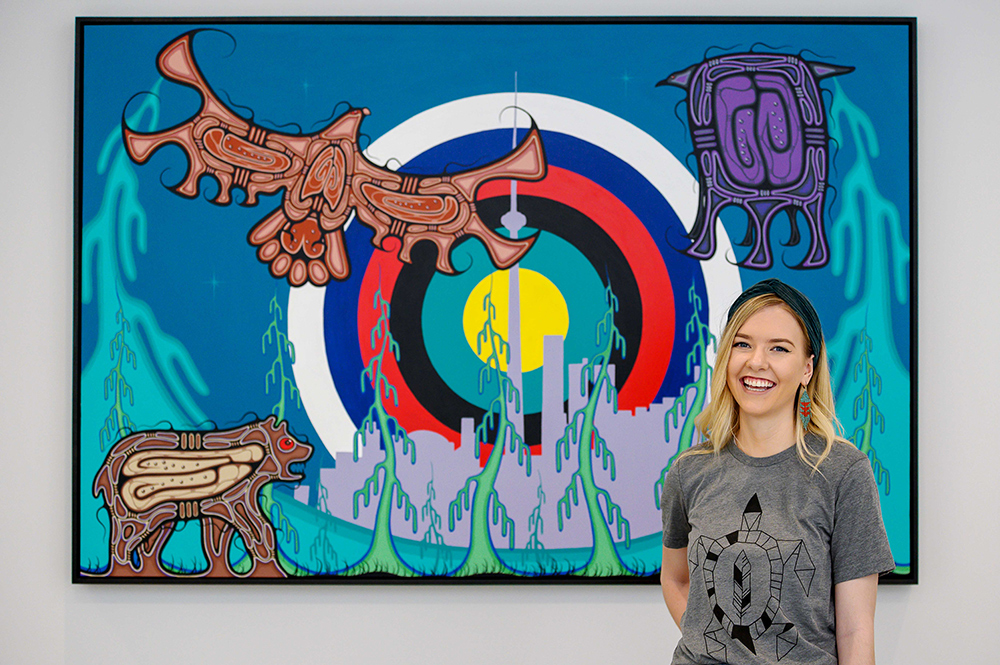Originally from Treaty Six territory in Saskatchewan, Karlie Nordstrom is now in her final year of a law degree at U of T. She spoke recently with University of Toronto Magazine about why she wanted to attend law school, the importance of Indigenous representation in the legal profession, and why the financial support she received from the Norman and Gay Loveland Bursary for Indigenous students was so helpful.
“My undergraduate degree was business. To finance my degree, I worked as a server in bars and restaurants, where a lot of women face harassment. At the same time, I was taking some employment law courses. The juxtaposition between what I was learning and what the law looks like on the ground in that industry fascinated me.
“When I first decided to go to law school, U of T wasn’t an option for me. Money had always been tight when I was growing up. U of T Law’s financial aid program is the only reason I was able to consider coming here. I’m so grateful to the Lovelands for the bursary.
“There is an immense need for support for Indigenous students because many of us can’t afford a university education. It’s important for the field, too. The law has a complicated relationship with Indigenous people and communities. It’s huge for Indigenous people to attend law school and be able to potentially change the legal profession.
A lot of the challenges that Indigenous people face today are because of the law. The law played a major role in colonialism – and still does. Regardless of where you fit into the legal profession, your work will affect Indigenous people, so I think there’s a responsibility to be well versed in the issues. Even in business law, where I intend to practice, it’s relevant. Infrastructure projects or resource development projects massively affect Indigenous people, for instance. And it’s important to know how your own role in the legal system affects Indigenous people.”
Recent Posts
People Worry That AI Will Replace Workers. But It Could Make Some More Productive
These scholars say artificial intelligence could help reduce income inequality
A Sentinel for Global Health
AI is promising a better – and faster – way to monitor the world for emerging medical threats
The Age of Deception
AI is generating a disinformation arms race. The window to stop it may be closing





